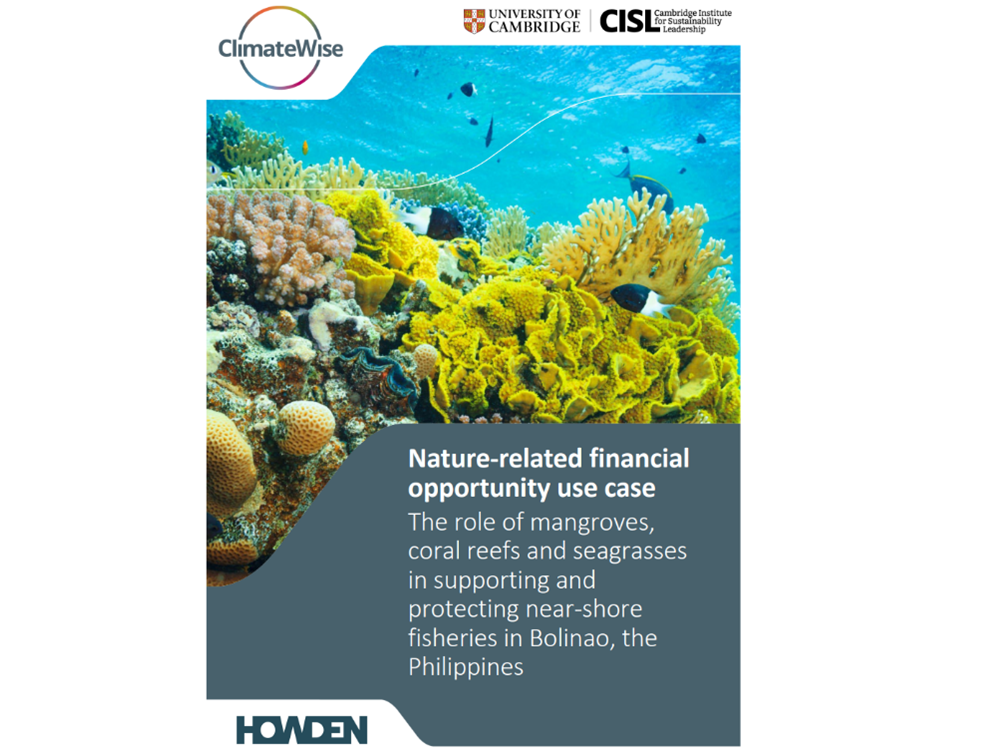The role of mangroves, coral reefs and seagrasses in supporting and protecting near-shore fisheries in Bolinao, the Philippines
Published
Read time

Read the nature-related financial opportunity use case
Learn more about the role of mangroves, coral reefs and seagrasses in supporting and protecting near-shore fisheries in Bolinao, the Philippines
5 June 2024 - Howden, in collaboration with CISL's ClimateWise, has published one of the first nature-related financial opportunities use cases, exploring the innovative insurance solutions to protect small-scale fishing communities in Bolinao, Philippines, focusing on the role of mangroves, coral reefs, and seagrasses in supporting coastal ecosystems.
The initiative highlights the need for insurance to safeguard biodiversity, promote resilience, and support sustainable development by addressing climate change impacts, incentivising conservation, and ensuring financial inclusivity for coastal communities and natural assets. Supporting Nature-based Solutions (NbS) is essential for the insurance industry's long-term financial viability as it helps mitigate increasing climate risks and fosters more sustainable, resilient ecosystems.
Daniel Fairweather, Director of Food Systems and Biodiversity, Climate Risk and Resilience, Howden, said:
Coastal communities and marine ecosystems are intrinsically linked, with severe weather and climate events causing disruption to both. This report identifies a role for insurance in building resilience in coastal communities and the marine ecosystems supporting them. Access to insurance and finance can incentivise environmental stewardship and risk management to help build both climatic and financial resilience, supporting those communities and livelihoods most exposed to climate change. This report should help inform investors, insurance practitioners and risk managers about the importance of ecosystems and nature in protecting and supporting economic activity in some of the most climate exposed regions and sectors.
This report was originally published by the Cambridge Institute for Sustainability Leadership (CISL). Click here to read more about the report.